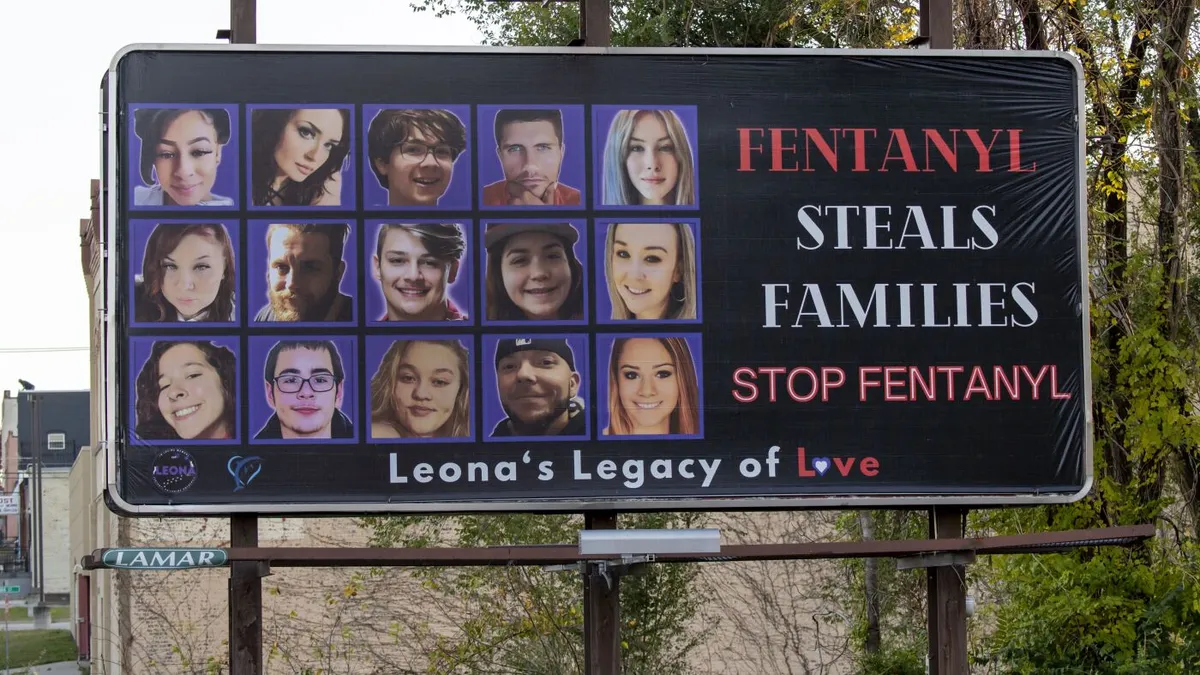
The Trump administration has recently announced a significant delay, and potential cancellation, of approximately $140 million in grants aimed at addressing the fentanyl overdose crisis in the United States. This alarming information comes from four staff members within the Centers for Disease Control and Prevention (CDC), who spoke to NPR on the condition of anonymity due to fears of retribution from the administration.
According to CDC staffers, the disruption in funding threatens to undermine vital initiatives within the Overdose Data to Action (OD2A) program, which plays a crucial role in combating addiction and lowering overdose deaths across the country. "These are lives at stake," stated one CDC employee involved with the OD2A program. The delay alone could result in layoffs and shutdowns of essential programs aimed at reducing overdose deaths from fentanyl, methamphetamines, and other drugs.
State and local public health departments have expressed that these funds are essential for their ongoing efforts. The last major interruption in addiction care during the COVID-19 pandemic led to a surge in drug-related deaths, highlighting the importance of continuous funding. "OD2A funding has been a critical piece of the decreases we've seen in overdose deaths," noted Chrissie Juliano, executive director of the Big Cities Health Coalition, which represents 35 urban public health departments. She warned that any changes to funding levels could have catastrophic effects.
The funds currently in jeopardy represent nearly half of the total funding allocated by Congress for the OD2A program, which supports fentanyl response initiatives in 49 states and the District of Columbia, along with multiple city, county, and territorial public health departments. Despite NPR's requests for comments from the CDC, the U.S. Department of Health and Human Services, and the White House Office of National Drug Policy, officials have remained silent on the matter.
Insiders report that the funding disruption appears to stem from bureaucratic confusion involving the Trump administration's Department of Government Efficiency (DOGE) and the Office of Management and Budget (OMB), both of which are scrutinizing OD2A grants before disbursement.
As many addiction and drug overdose programs approach the end of their current funding cycle on September 1, public health officials across the nation are bracing for uncertainty. The Vermont Department of Health stated that they had paused new spending due to warnings from the CDC about potential delays or cuts to OD2A funding. "We can't promise all the funds will come," CDC leaders noted in a recent meeting, emphasizing the procedural issues that hinder the program's implementation.
The Biden administration had previously ramped up funding for drug treatment and addiction health to address the escalating fentanyl crisis, resulting in a decline in overdose deaths. However, public health experts are now concerned that the Trump administration's actions could unravel the progress achieved in recent years, especially as provisional data revealed over 82,000 drug-related deaths in the 12-month period ending in January.
Three of the four CDC sources indicated that the grant disruption could severely impact federally funded state and local surveillance systems designed to monitor the emergence of new, dangerous substances in the illicit drug supply. Keith Humphreys, a drug policy researcher at Stanford University, emphasized that defunding these monitoring programs would significantly endanger public safety, stating, "If public health officials don't know what's in the drugs, they can't warn the public."
In addition to the delays in OD2A funding, the Trump administration has proposed deep cuts to Medicaid, the primary source of funding for most addiction treatment services in the U.S. Research indicates that as many as 156,000 individuals struggling with fentanyl addiction could lose access to effective treatments, such as methadone and buprenorphine. Dr. Benjamin Linas, an addiction researcher, cautioned that this could lead to approximately 1,000 additional fatal overdoses annually among those who lose access to care.
Despite the challenges ahead, some public health officials remain hopeful that OD2A funds will be released in time to prevent further harm. "We have not received formal notice but are assessing potential impact," said Dr. Bisola Ojikutu, Boston's commissioner of public health, reflecting the uncertainty surrounding future funding.
CDC staffers have noted that while there is broad policy support for overdose prevention programs funded through the OD2A grant program, the current budget review process involving the CDC, HHS, OMB, and DOGE has complicated grant approvals. "We have no idea what it is they are looking for," one CDC staffer admitted, raising concerns about the effectiveness of the DOGE team's oversight and their understanding of the medical needs related to addiction treatment.
The situation remains fluid, and the implications of funding delays could have far-reaching consequences for public health initiatives aimed at combating the fentanyl crisis. As the nation grapples with this ongoing public health emergency, the urgency for stable and secure funding for addiction treatment and overdose response programs has never been clearer.